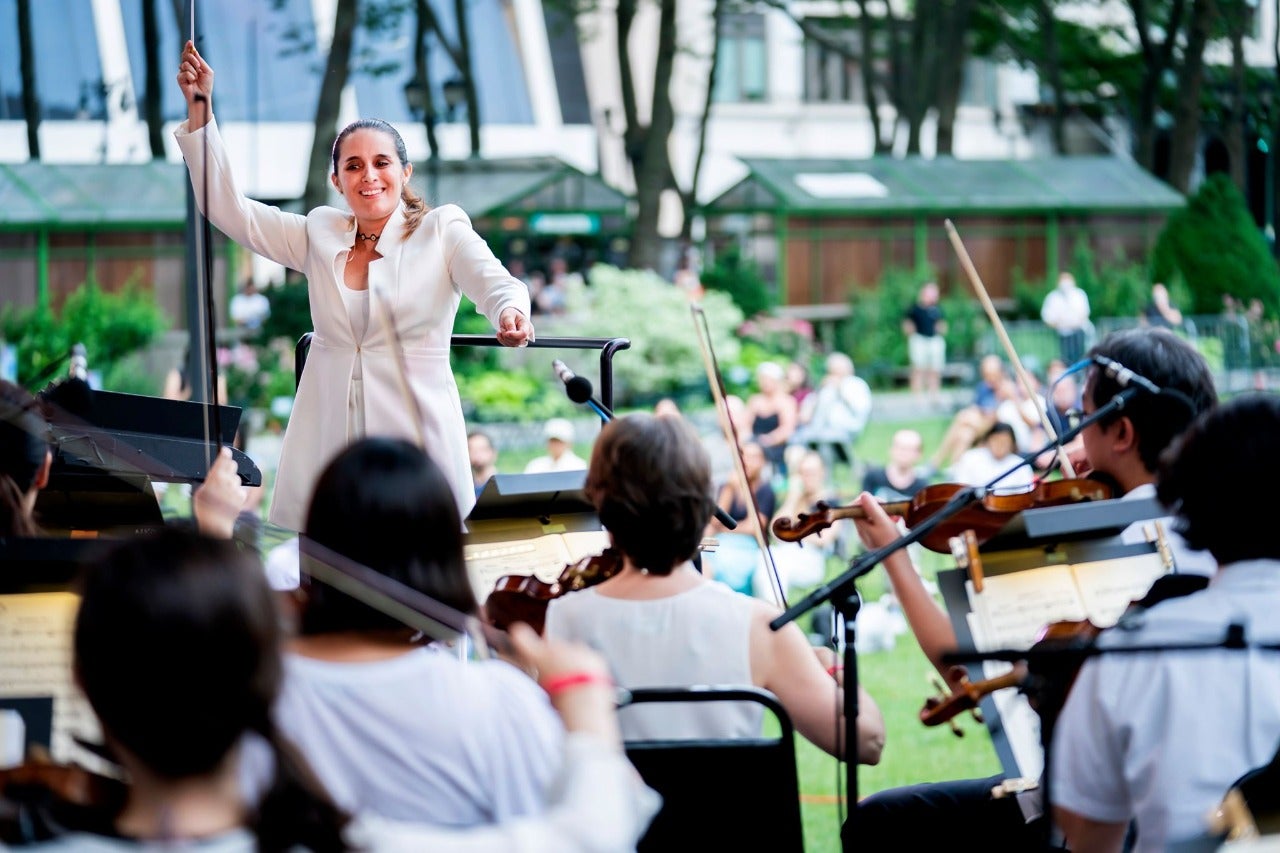Karen Yineth Pinto Duitama
–
Lina González-Granados made her debut with the New York Philharmonic Orchestra between June 9 and 12 during the city’s reopening events. She has been awarded the 2021 Sphinx Medal of Excellence, is the assistant conductor to maestro Riccardo Muti in the Chicago Symphony Orchestra and is a fellow conductor of the Philadelphia Orchestra and the Seattle Symphony, and founder of the Unitas Ensemble, an orchestra focused on highlighting Latin American composers.
González-Granados spoke about his career in the music industry and the status of local artists in the world.
How was the career you started more than a decade ago?
At the beginning there were many more negatives than positives and that is normal. I consider that one of the successes has been how you react, and having a level of resilience. When I know that there are things that I did wrong and it is under my control, I assume those things and I think they are the ones that hurt me the most. Sometimes I call my dad who is like my best friend and he is the one who gives me the advice. So with a lot of perspective, always thinking that in reality there is a lot of competition and that not all opportunities can be mine.
How good are the Colombian musicians?
I firmly believe that education is very good. There are people doing homeland, because it is done in various ways, not just going to direct the Philharmonic in New York. The academy is one thing and the classical music entertainment business is another, which is in New York, London and Paris, because they are confluent cities of musical tourism. I see people (in Chicago) who come from South Korea, China and even Chile, just to see the rehearsals. The intrinsic value to society is much more than just playing music, there are a lot of things that can be activated through.
How profitable is it to be in academia or musical entertainment?
It depends on the level, and is it that money is what makes our art valuable? I do not believe. They are simply different ways of performing, a composer, a teacher, an interpreter, they all have profitability and value, which one is more profitable than the other? sometimes I meet teachers who have many more benefits and pensions than we who travel around the world; everyone has fun and seeks success in different ways.
How to create opportunities for musicians who want to conduct large orchestras?
One is definitely opening spaces in professional orchestras to help young talent and definitely believing in national talent to project it internationally and not the other way around. The other more long term is to promote music education to create not only musicians but also audiences who can enjoy and believe that music belongs to them. In the villages they do not have access to high caliber musicians who can inspire them. So, let’s decentralize the culture, which we all create in the countryside, in small cities, in the Caribbean, in the Pacific, because there is an impressive talent.
What projects were you doing before your debut with the NY Philharmonic?
During the beginning of the pandemic we founded with a colleague of mine Conductors Colective a worldwide community of directors who provide free classes, we started the first webinar on March 15, 2020, and we shared management concepts where leadership is healthy, there are limits and we can talk about failure in a more humane way. Our work began to resume in September, my first trip in a pandemic, it was to France, I went to La Maestra, a world competition for conductors and there I was in third place, it was very cool.

How was the experience of conducting the New York Philharmonic?
It’s very cool, it seems like it was yesterday, but time goes by super fast. It was very exciting, there were four concerts, it was the first time that the orchestra was fully reunited this year due to the pandemic, we had audiences that were not the cameras and that is very important in this rebirth of the United States that is just in process .
How are these types of projects analyzed and what requirements must they meet to accept them?
The first is definitely always artistic, if the repertoire is one in which I feel comfortable, if it is one that I have already done or if it will be easy to do well. Because anyway (for the debut in New York) I had a busy schedule, so I couldn’t drop everything to do it, fortunately the repertoire was on loan, half of the repertoire knew it to me. Second, if at that time I am ready for an orchestra or not, because there are orchestras that are actually windows of a lot of exposure and you carefully analyze whether that exposure is going to be positive or negative. I am a believer that you have to be aware of what your limits are, so that you can grow well instead of burning yourself.









